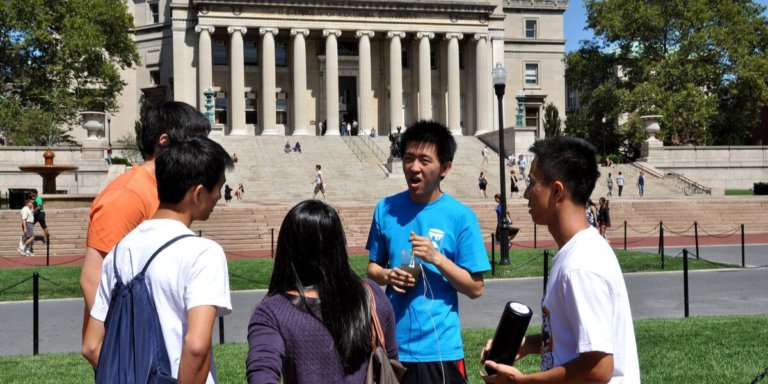
Spurred by the China-US trade war, Chinese students are now seeking alternative study abroad destinations.
The US used to be a top choice for outbound Chinese students, but visa restrictions and the growing conflict between the two countries are urging them to seek an international student experience elsewhere.
According to AFP, via Channel News Asia, “China accounts for nearly a third of foreign students on US campuses who pour billions of dollars into the economy, but in March their numbers dropped for the first time in a decade.
“Visa delays, concerns over being shut out of research projects and safety fears have turned off Chinese students, according to several admissions consultancies and nearly a dozen parents and students interviewed by AFP.”
According to NAFSA: Association of International Educators, Chinese international students are responsible for contributing US$13 billion to the US economy in tuition fees and living expenses.
But now that revenue is dropping, as increasing numbers of Chinese students are turned off by the increased scrutiny they are facing.
“Top US universities including Yale and Stanford have complained that the trade war has affected campus recruitment.
“The State Department has said the increased scrutiny was prompted by a rising number of students who were co-opted by foreign intelligence while in the United States.”
Trump’s next trade war target: Chinese students at elite U.S. schools https://t.co/2yzU7zN6NW
— Bloomberg (@business) June 3, 2019
Besides the visa restrictions and increased scrutiny, the Chinese government recently issued a ‘travel warning’ against gun violence and robberies in the US, which could also be a deterrent.
Li Shaowen, a foreign college tour organiser, told AFP, “State media have been pumping up reports about crime in the US and families, especially from smaller Chinese cities, feel America isn’t safe.
“We have over 250 families visiting universities in Europe and the UK during this summer break, while only 75 families are going to the US. The numbers were reverse last year.”
Trump has made some efforts recently to encourage Chinese students to continue applying to the US, but the damage might have already been done.
“Trump attempted to allay Chinese students’ fears after reaching a trade war truce with President Xi Jinping at the G20 summit last week, saying they would be treated “just like anybody else”.
“He also proposed a “smart person’s waiver” that would make it easier for the brightest minds to get a Green Card allowing permanent residency.”
Chinese students in US are upder some pressure from tougher visa rules & indirect effect of US-China trade war. Despite current woes of Canada-China bilateral relations, Chinese students & scholars in Canada are not yet under same pressures. https://t.co/nhDVwhhgpM
— Gordon Houlden 侯秉东 (@GordonHoulden) July 7, 2019
So where are Chinese students looking to for their overseas education?
A survey by New Oriental China’s biggest private education provider said that Britain, Australia, and Canada will benefit the most, followed by other countries in Asia and Europe.
According to AFP, “Japan and South Korea – traditional study abroad destinations for the Chinese elite – and parts of Europe, especially Germany and Scandinavian countries with strong engineering programmes, have also seen an uptick in applications, the survey found.”
Melissa Zhang, a 17-year-old high school senior in Beijing, told AFP that she has changed her mind about applying to a US university and is now taking German lessons in hopes of gaining admission into a robotics programme in Dresden.
She felt she wasted a year preparing for the SATs, but didn’t see the point of studying in the US if she was just going to be “shut out of a research lab, just because I am Chinese.”
Her mother Mingyue said, “If America makes them feel unwelcome, they’ll go elsewhere…this generation feels the whole world is open to them.”
Liked this? Then you’ll love…
How are Chinese students being affected by the US-China trade war?
The international student’s guide to the US-China trade war and how it impacts them







